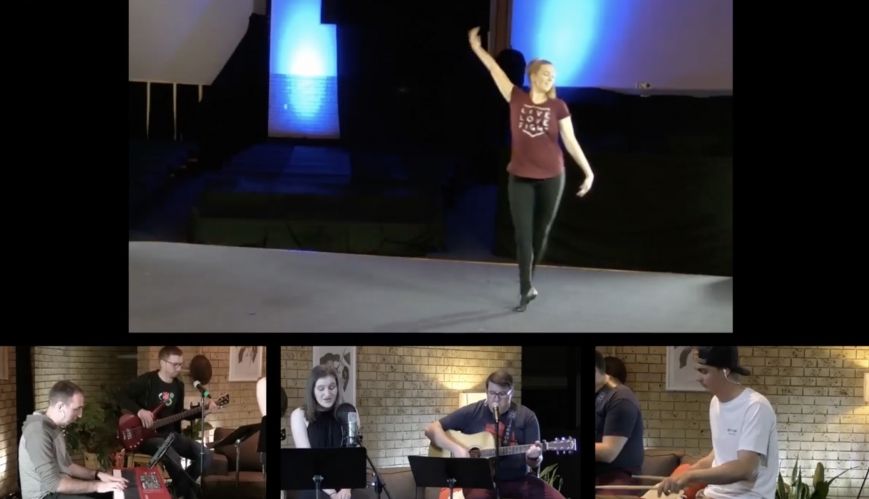The Arts: Adapting to a 'new normal'

The Arts: Adapting to a 'new normal'
12 October 2020
The worship arts team from The Salvation Army in Carindale, Queensland, continued to perform online together during COVID-19 restrictions.
“Artists have the ability to create something that evokes different reactions from each individual. It can inspire hope, cause reflection, unbridled joy and a raft of other emotions. Art is the creative expression of the human spirit and it needs to be nurtured, celebrated, curated and experienced.” – Meg Wilson, Director of the ACT Writers Centre.
The Arts were among the first of a long list of industries hit by COVID-19. Festivals, concert series, events and galleries were all cancelled, postponed or closed when the pandemic hit Australia in March. Staggeringly, within two months, under 50 per cent of all arts and recreation businesses remained trading (compared to 90 per cent of Australia’s other industries).
Since that time, the Arts have pivoted and began pioneering new methods to connect to audiences longing for connection. Artists took their talents to a virtual medium through the internet and social media. As a result, the country remained entertained, stoic, encouraged and laughing despite the uncertainty of the situation. Many of these artists did so in the knowledge that their own livelihood, career or employment was just as uncertain as the situation itself.
In The Salvation Army, the pivot into a virtual medium has been just as sudden. Many church services have gone ‘live online’ or have been recorded for online purposes. Musicians, artists and leaders accustomed to playing live have transitioned to multi-layering or recording worship, songs, scripture and sermons.
But what of the Arts as a ministry? Many corps have embraced virtual performances to engage not just their own congregations, but the wider community. Bands and the Just Brass program have recorded virtual projects or concerts and used Zoom in place of weekly rehearsals. Graphic designers, artists and photographers have had a wider platform in which to share their skill set – pointing people upwards when sharing beautiful artistry.
At Carindale Salvos in Brisbane, the weekly dance program transitioned to a weekly video lesson sent by the teacher to the children and youth that attended. The worship team recorded the track separately, and the children and youth then submitted their videos where it was edited and compiled for both ‘Church on the Couch’ [Sunday church] and social media platforms during the week.
Through all of this we recognise the physical, emotional, spiritual and mental benefits that the Arts have on our Salvation Army artists, and those they connect with.
This transition to virtual mediums will leave a legacy of connection with local communities. As Canadian church leader and blogger Carey Nieuwhof often states, “Everyone you want to reach is online.” It is important to consider that as restrictions differ around the country, can we afford to go back to ‘normal’ in the Arts without holding on to the connections, collaboration and community that shifting to online built?
The Arts are essential to any community or country. Through the Arts we learn to creatively express ourselves, to reason with emotion, to grapple with current issues. Every time we watch TV, listen to the radio, go to the theatre, read a book, look at a cartoon or attend live concerts, we are benefactors of cultural input into our lives. Through these mediums (and many more), we learn who we are as individuals, and in the grander scheme of society and community.
Eric Liddell, the Olympic gold medalist featured in the film Chariots of Fire, said,“God made me fast. And when I run, I feel his pleasure.” Just like Eric, I believe that when we play, dance, sing, paint or compose, we are connecting with God on a deeper level. God made us creative, and when we use that gift, it is the highest form of worship.
Please continue to support our creative artists and performers over the coming months and years, both within, and external to, our wonderful Salvation Army community.